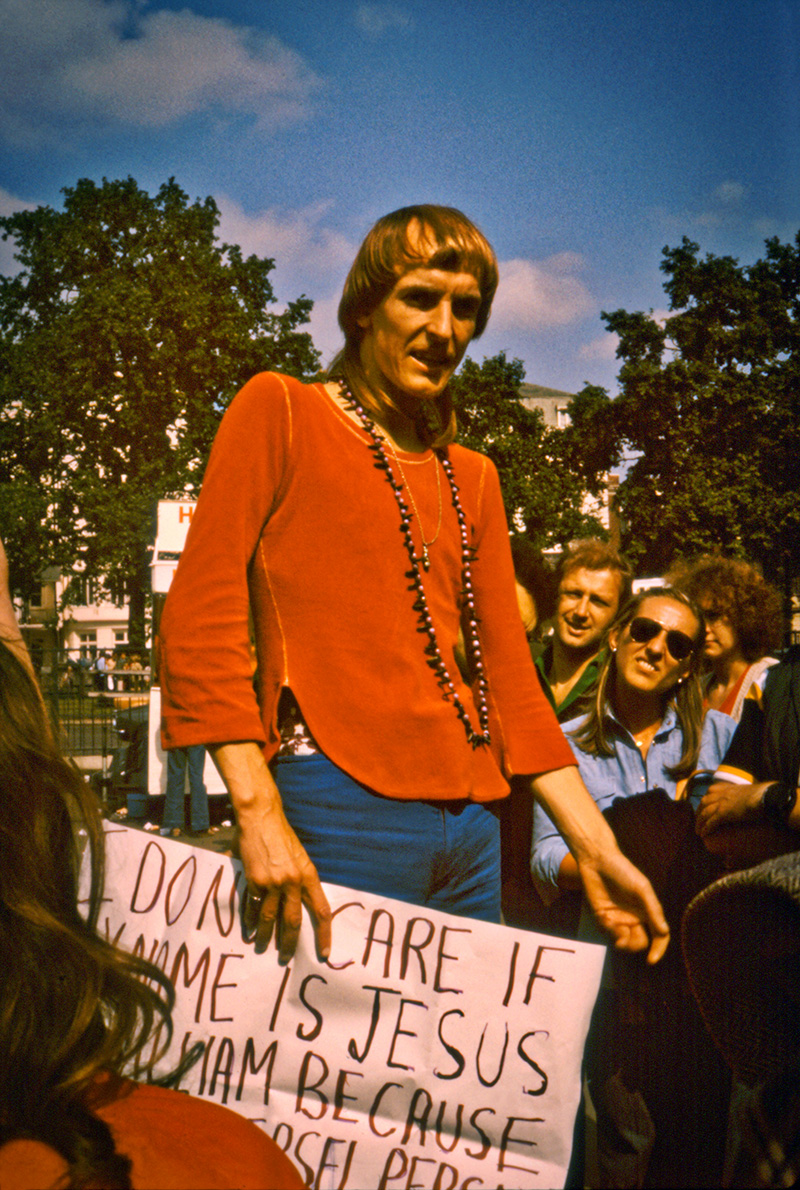Forty years ago, my family spent the summer vacation touring Europe. I felt ambivalent about the experience. While I wanted very much to tour Europe, it meant I had to leave my girlfriend behind. We pledged our undying love for one another. We exchanged a flurry of letters. Predictably, when I returned at the end of the summer, we broke up. I brought a Yashica 35 mm camera with me. While the camera survived, its case sank to the bottom of the Grand Canal in Venice.
This was the summer I discovered both poignant loss and street photography. I didn’t call it street photography; I called it taking pictures of people in public spaces. On a Sunday afternoon, we went to Speakers’ Corner in Hyde Park. My father explained that it was a symbolic affirmation of the basic freedoms enjoyed by people in British society, or words to that effect. In Canada, the Charter of Rights and Freedoms was four years away, so we had no equivalent affirmation. I loved Speakers’ Corner. I loved the unruliness of it. It verged on chaos. It was at Speakers’ Corner that I first intuited how talk of freedom necessarily engages us in compromise. Freedom is not an absolute value. If every member of a society is free, then some of those members will end up saying and doing things I don’t like. I have a duty to safeguard their freedom by putting up with them, perhaps even embracing them.
As a kid with a camera, I entertained a fantasy that I was an intrepid journalist, a seeker after truth. I felt free to do whatever it takes to get the shot. There was little nuance in my thinking about photography. In fact, I’m not sure it occurred to me that photography might engage me in ethical concerns. I saw a man (or whatever) dressed like a girl (like I said, there was little nuance in my thinking back then), soft-spoken and holding a sign while a crowd pressed in. The only ethic guiding me was the ethic that told me to get the shot at all costs. When you’re shooting with a 35mm lens, you have to get close to fill the frame. Although an introvert by nature, I pushed into the crowd. The speaker stared directly at me. I released the shutter. But there were things I didn’t do. I didn’t listen. I didn’t wonder about the power dynamic at play in our relation to one another. I didn’t ask myself if my camera was a colonizing tool.

I can be forgiven my failures. After all, I was a teenager and so lacked the experience and education to frame questions the way I frame them now. Some questions—those relating to privilege and colonization in everyday relations—had scarcely entered the general consciousness much less the consciousness of a fifteen-year-old. In a way, then, this photograph I made in 1978 in Speakers’ Corner is more reflective of innocence than ignorance.
It is arguable that in the summer of 1978 the whole world felt an innocent pause, a shining moment in time when people of the West could pretend there was nothing pressing at the doorstep. Saigon had fallen which meant American and Vietnamese kids weren’t getting killed anymore. A peanut farmer was President of the US of A. Canada’s leader was a playboy/media darling who seemed to swing the world by its tail. Never mind that Pol Pot was committing genocide in Cambodia and a US-backed lunatic was disappearing people in Argentina. These were far-away places and so didn’t really matter, certainly not to a teenager vacationing in Europe.
Soon enough, the pause ended and the West had to rejoin the world. Pope Paul VI died as our family entered Italy and people were anxious to know what direction the Roman Catholic Church would take. A few months later, a revolution would depose the Shah of Iran, and students who supported the Ayatollah Khomeini would hold members of the US Embassy hostage. A newly elected Margaret Thatcher would introduce policies of austerity and union-bashing that would hobble the British working classes. A year after that, Oscar Romero would be assassinated throwing El Salvador into years of civil war, a situation that Ronald Reagan’s policies would perpetuate. HIV/AIDS became a crisis, especially within gay male populations, another situation Ronald Reagan’s policies would perpetuate.
Yet, for an instant on a Sunday in July, I was unencumbered by the past, and unafraid for the future. I framed my subject and released the shutter.